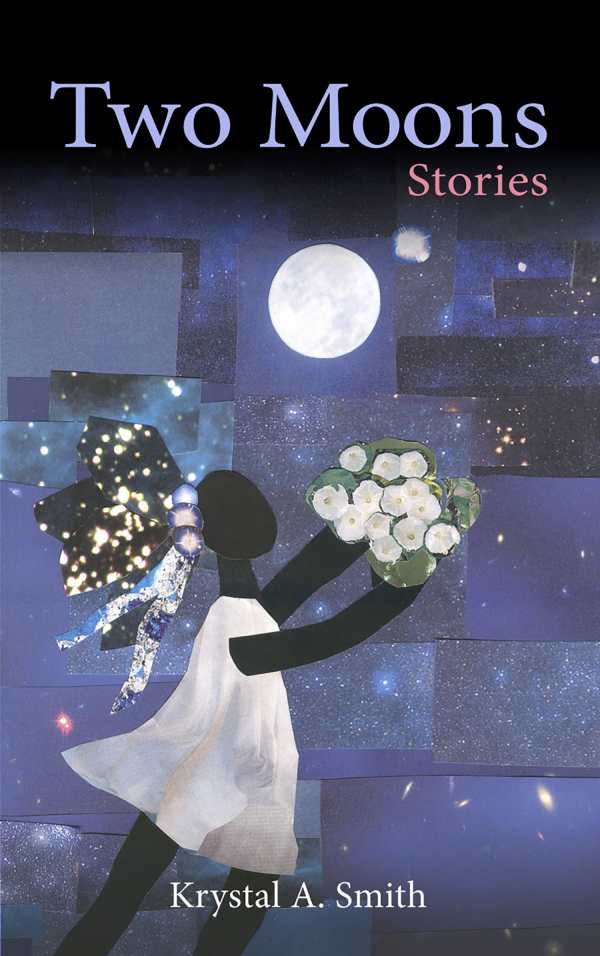Two Moons
Stories
Krystal A. Smith’s Two Moons is an imaginative and whimsical collection of speculative short stories focused on themes of love, loss, fertility, and redemption. Each story is more fantastical and surprising than the last. Yet no matter how bizarre the premise, the unbelievable is treated with credibility. Love between women, whether they are human, heavenly, or anthropomorphized objects, is presented with realism and tenderness.
The majority of the stories have qualities of myths and folklore about them. In the title story, the moon is envisioned as a celestial being named Luna who falls in love with a human named Selene. In “Harvest,” a poor farming woman, Korinthia, is tasked with providing food for her community. She struggles with infertility until she’s suddenly visited by a herd of rabbits. In “What the Heart Wants,” the most compelling and interesting story in the collection, a woman’s heart moves out of her body and coaches her after she realizes she might be unlovable.
Writing is clear and evocative, and creative twists abound. Characters are a likable bunch. Read in succession, though, the narratives begin to feel homogeneous. It can be difficult to tell characters apart from each other as the book goes on. The situations, too, start to sound and feel too much alike.
Stories don’t feel long enough; many end just as they gain momentum. In “Harvest,” an abrupt end comes just after Korinthia’s dreams are realized and her offspring goes out into the world. Readers will be left wanting more.
Even if its stories blur together, they remain individually light and delightful. Two Moons is an entertaining speculative collection from a talented writer.
Reviewed by
Matt Grant
Disclosure: This article is not an endorsement, but a review. The publisher of this book provided free copies of the book to have their book reviewed by a professional reviewer. No fee was paid by the publisher for this review. Foreword Reviews only recommends books that we love. Foreword Magazine, Inc. is disclosing this in accordance with the Federal Trade Commission’s 16 CFR, Part 255.


